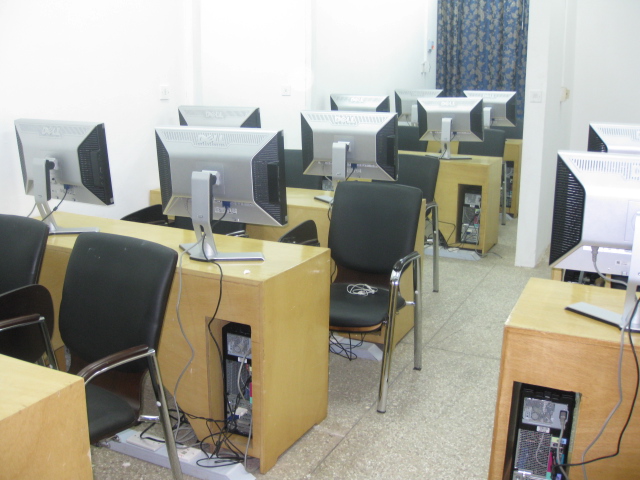Molecular Modeling Centre

The Computational and Theoretical Chemistry Centre is dedicated to the development and application of state-of-the-art computational chemistry techniques to explore nature at the atomic and molecular level.
Today, the focus of the quest to understand nature has largely shifted from exploring the macroscopic world to understanding and controlling processes at the molecular level. "What electrons are really doing in molecules" is of central importance for solving the world's energy problems, predicting atmospheric processes and climate, or designing new drugs and materials. Electrons are fundamentally different from macroscopic objects and follow the laws of quantum mechanics. The problem of electronic structure is therefore one of the most intellectually challenging problems in the history of science and requires very sophisticated models and massive computer power.
The research interests of the center lie in:
- The development and application of ab initio, density functional theory, molecular dynamics and semi-empirical techniques to study organic and organometallic reaction pathways.
- The application of molecular mechanics and quantum-chemical techniques in rational drug design (computer-aided drug design).
- Computational Materials Science involving studies in the following broad areas:
- Mineral surface structure and stabilities
- Surfactant adsorption at mineral surfaces
- The structure of active sites at the internal surfaces of zeolites
- Transport and sorption in zeolites
- Redox behaviour of metal clusters on oxide supports
- Reaction mechanisms at oxide-supported metal clusters
Molecular modeling is the science of representing molecular structures numerically and simulating their behaviour with the equations of quantum and classical physics within the virtual space of a computer. Quantum chemical simulations can provide detailed information and insights into chemical processes that are sometimes difficult or impossible to obtain experimentally. Many new important chemical reactions for making desired products are discovered serendipitously, but in order to shorten product-process development cycles, the current emerging paradigm focuses on increasing mechanistic knowledge to take control of the rational design of new products with pre-determined desired properties. This is the enterprise that the Molecular Modelling and Cheminformatics Centre at KNUST is involved in.
Currently, molecular modelling is extensively applied in atmospheric chemistry, environmental chemistry, medicinal chemistry, surfactant chemistry and in the design of drugs, catalysts, semi-conductor materials, molecular switch designs and other novel organic materials for electronics and optoelectronics.
The long-term goal of this centre is to make KNUST a centre of excellence in Molecular Modelling in Africa and place it on the world map of molecular science research.
The facilities available include:
Hardware:
- Beowulf Computing Cluster
- HP ProLiant ML350 G6 Servers
- Twenty (20) Dell Precision T3400, Intel Core 2 Quad CPU workstation computers with 25''-monitors and external memory back-ups.
Software:
- SPARTAN ’06, SPARTAN ’08, SPARTAN '10 and GAUSSIAN ’09 molecular modelling packages, MATLAB 7.7.0(R2008b), the Cambridge Structural Database, a protein database and other supplementary programs.
- QUANTUM ESPRESSO.